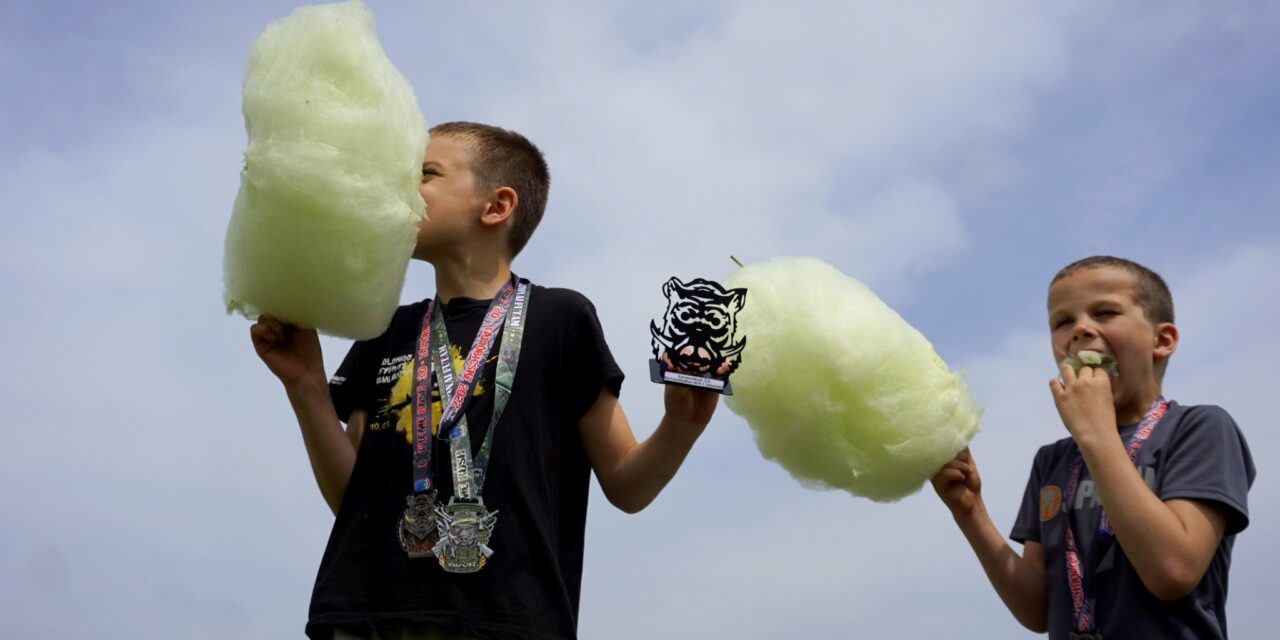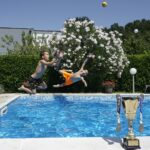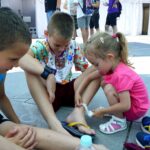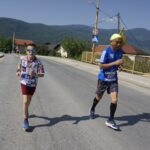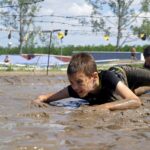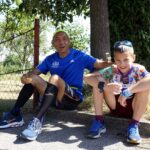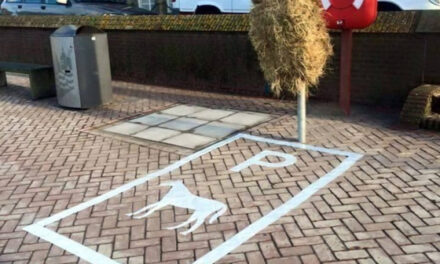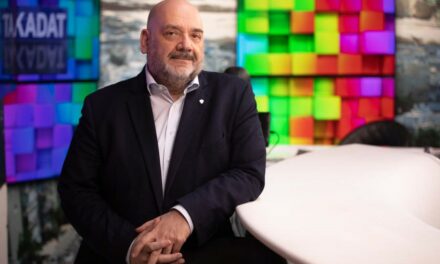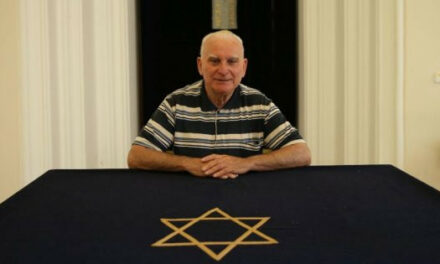"On the day when sin takes pleasure in the image of innocence, innocence is called upon for self-justification by means of an interesting transition" - Albert Camus
It will be difficult to speak calmly about Lóci and his brother, Olivér, about their case, and about the crucifixion and dragging of their family along with them in the spirit of the times. It's hard since their only crime is normality.
Paradoxically, the story of Lóci and Olivér does not begin with Lóci and Olivér, the ten- and eight-year-old teenagers, but with the children of another society, of a society that at some point, on the way to welfare stupidity, decided that its children could now be anyone and anything, except of course physically - an adult blessed with mental health is not, as it is not very fashionable these days. However, the West did not stop there, it is not its custom, it began to spread the "idea" - which decides on who, what and how to raise the children by putting aside the parents - and wanted to see its great educational project in all its colonies. Even in Hungary.
In our country, one of the symbolic milestones of the path of the idea was the 2016 Oscar-awarded Everybody , which, according to critics who lived by the Zeitgeist, "raises serious pedagogical questions, including the harmful side effects of the competitive spirit." I think it's about nothing else, but how to destroy children at a tender age, by misleading, deceiving, and educating them to mediocrity.
It does not mean that everyone is talented in something, therefore it is the joint task of the parent and teacher to find an area suitable for the child's abilities and interests, where he can achieve success. No.
It sends the message that in a specific genre - in the film it's singing, the chorus - we allow a talentless child to act as he likes - to croon in the film - by starting him on a path on which he is guaranteed to fail, ruining everything else in that field. the performance of a truly gifted child. All this in the name of a hypocritically constructed, false compassion.
This is how we get to the story of Lóci and Olivér, and their multi-degree parents. Attila and his partner already decided when starting a family that they would live with their children in physical and mental health, raising the boys according to a strict set of values. Both children are diligent and well-behaved, Olivér is an excellent student, Lóci's end-of-the-year certificate received only one four in addition to fives. They don't have smartphones, tablets, or electronic gadgets, they can only use the Internet under parental supervision, but the Attilás also filter television content, but Hungarian folk tales and Frédi-Béni can come on at any time. In their free time, in their own home, they play pinball together, socialize, play cards, show slideshows, and like to spin the Rubik's cube.
Stone age, isn't it?
In addition, they also play sports, preferring outdoor activities, and although Attila did not always like running, he preferred soccer, the guys run and wrestle, and thanks to association sports, they are under regular professional and health control . In Hungarian, they are physically healthy, their InBody test (body composition measurement - ed.) is perfect. By the way, they both received a certificate of recognition at their school for their excellent academic results, and Lóci also received a special certificate of praise for his achievements in national sports competitions. But the recognition of the older boy's sports achievements is not new: in 2021, on the occasion of the Hungarian Sports Day, he was praised by the mayor - as an amateur runner - "in recognition of his outstanding sports results achieved in the most varied running competitions, as well as for his exemplary sportsmanship and persistent work".
the case of Lóci, who legally the Sarajevo marathon Imre Csontos, who reported his parents for "evisceration and self-image distortion" Several portals have already reported on the story, one of the most detailed articles presenting the positions of both sides was published on Családinet.hu, therefore, for reasons of length, we will not repeat the details here.
Instead, we have to ask whether in Hungary today, within the legal framework - i.e. without endangering the minor - and keeping in mind the physical and mental health, talents and desires of his child, any parent has the right to raise him as and for what he wants. want without being dragged for it?
In simpler terms: can we raise strong, confident, determined, self-aware, healthy, sane children without the police and guardianship procedures owed to Imrék Csontos?
It is worth noting here, at least in parentheses, that Csontos did not slander the parents of an overweight teenager who hangs out on the street, joins gangs, drinks alcohol or drugs, but no! I wonder why?
Nicknamed Csonti, he met Lóci and his father for the first time on April 25 this year at the "Little Danube Marathon". He won the 10-kilometer race in Ráckeve by himself with a course record of 35:25. In the same competition, Lóci finished 13th overall with a time of 46:21 out of 172 runners, which was 2nd in the so-called youth (0-17 years) category. Csontos described this in the aforementioned interview as follows: "the speed of the boys is not particularly outstanding."
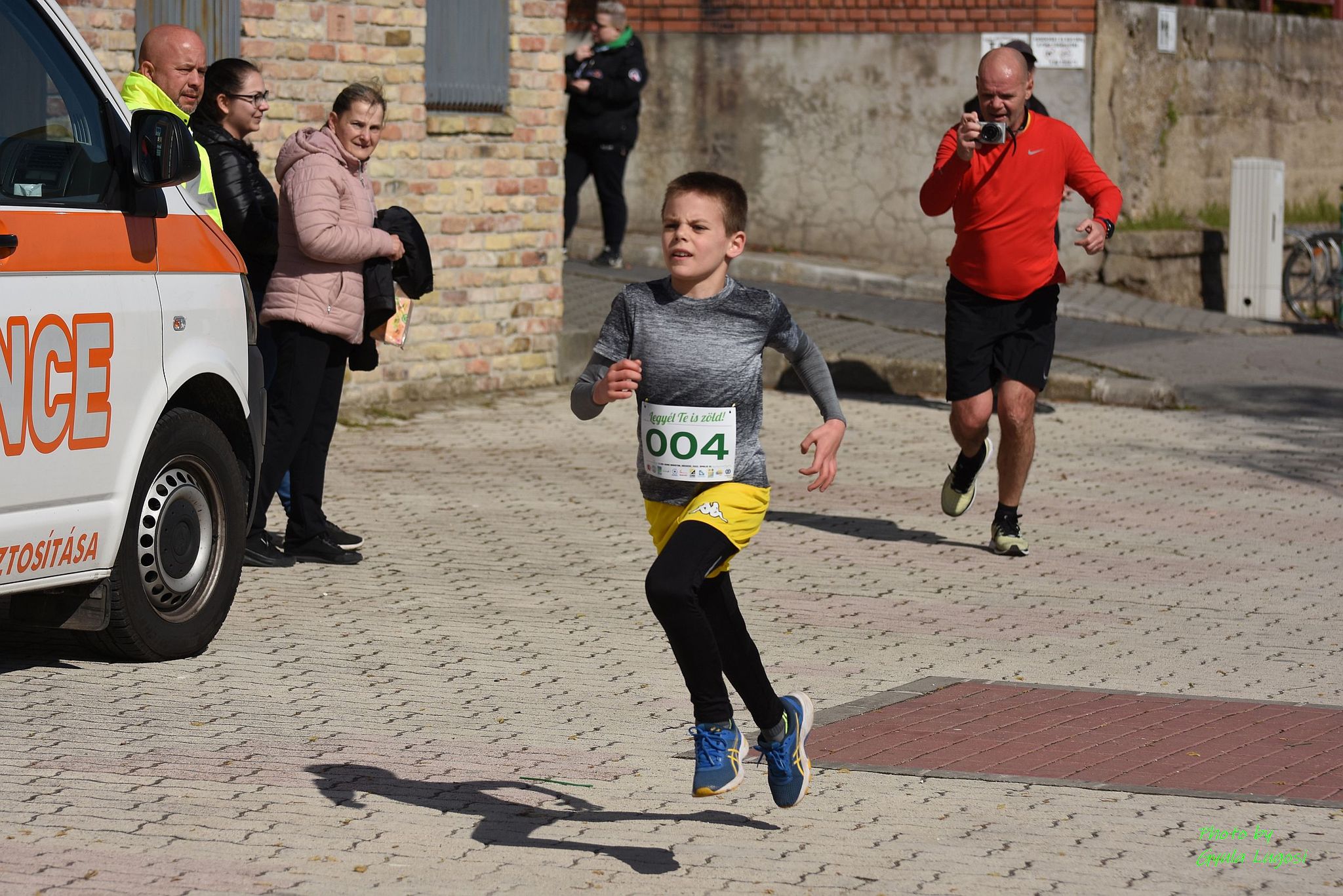
Lóci and his father, Attila, at the "Little Danube marathon" in Ráckev, on April 25, 2022.
Attila has a habit of taking many photos, capturing the children's achievements - he's already guilty! –, he did the same in this competition, but no picture could have been taken in which Csontos would have congratulated his underage competitor for his performance, quite simply because such a gesture was not made on his part.
The coach remembers the event like this:
"I saw the little boy and his father for the first time at a running race in Rákkeve. I thought, what on earth is he doing here? I didn't file a report at the time, but when the article about the Sarajevo marathon came to my attention, I decided to file a report."
After the marathon, Csontos filed a report with the police and notified the guardianship department, according to his claim, he "took all the necessary steps" - all this without even trying to contact the family before filing the report, he did not seek them in any way, nor did he initiate a conversation with the parents , nor with the children he thinks should be protected. After his feverish effort to file a guardianship complaint, the child protection procedure started with unprecedented speed, the office's staff had already registered with the parents for a "friendly" environmental study. Csontos therefore, without knowing or needing to know the family, immediately forced the authorities to take action.
He expresses an opinion, he says. How does he express his opinion like that?
After that, Attila approached him and invited him to their place for a conversation, which the coach accepted, then quickly backed out, telling the father that they should go down to his place for a training session, and he would show this and that to the children.
After all, there is nothing strange about this, I also report strangers on a whim if I don't like their blog, and then I offer them my services. Because that's how it's done.
But even this would not have been a problem if Csontos had not failed to emphasize in all his statements that he made his report only in the interest of the children.
For the sake of Lóci and Olivér, who learned about the report from their teammates during a training session, and then went home crying, terrified of their father's imprisonment, and said they would rather never run again.
Isn't it wonderful?
Did Imre Csontos realize that he had entered a path, dragging a family with two children with him, from which it is impossible to deviate or turn back. They all have to go through it, and the authorities will make a decision at the fork in the road before the finish line. Either they give Csontos the truth, or they don't. Judging by his expressions, the coach does not count on the latter option at all. You could count. For my part, I am quite sure that he will lose, well-deservedly, casting a big question mark on his previous, and especially further, activities. That's my opinion, huh.
All Lóci and Olivér have to do is to overcome their doubts and do what they have been doing: if they feel like running, run, if they want to play soccer, play soccer, if they want to swim, swim, if they want to wrestle, wrestle. And read books. For my pleasure. And for your own pleasure.
The cliché is true: what doesn't kill you makes you stronger, and the only thing that distinguishes a loser from a winner is that the latter gets up one more time.
The world is by no means a friendly place, it is full of self-proclaimed world pacifiers, decorators, and Imrék Csontos. However, beyond these siren calls, the truth is always there, smeared with saliva and mud, but it is there, and one day it will be revealed. This time will be no different. And on this day, illuminated by a needle light, it will become obvious that
For Imre Csontos, only one thing mattered in the case he started: Imre Csontos.
But until then, let normality roar! Scream at the top of your lungs! We've heard enough.
The photos appearing in the article were made available to us by the family.
The title refers to a 2006 German drama: Das Leben Der Anderen , i.e. The Life of Others .

